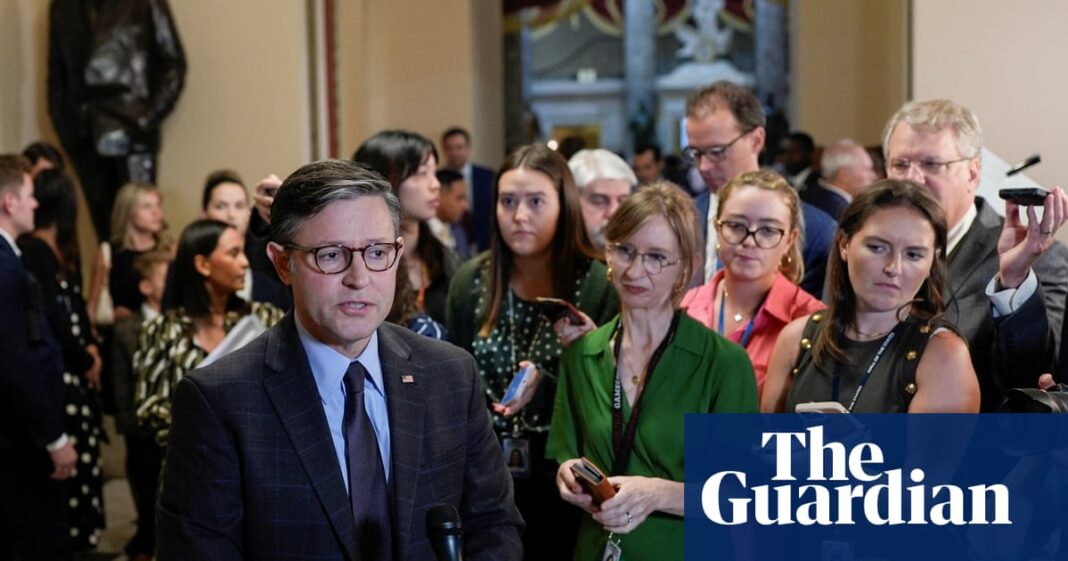Approaching the Brink: U.S. Federal Government Shutdown Looms
As the U.S. federal government edges closer to a shutdown, tensions between Democrats and Republicans have reached a boiling point. On Friday, Democrats firmly opposed a Republican-backed measure aimed at extending government funding for an additional two months. Their primary concern? The proposal’s failure to safeguard crucial healthcare programs.
Legislative Gridlock in the House
The Republican-controlled House of Representatives approved the controversial spending bill on a near-party line vote. The only exception was Maine Democrat Jared Golden, who broke ranks to support the measure. Now, the proposal heads to the Senate, facing an uphill battle due to the need for at least some Democratic cooperation to break the 60-vote filibuster threshold. Observers are raising eyebrows at the increasing partisan divide, signaling a noticeable shift in legislative strategies.
Stakes of a Potential Shutdown
The Democrats are standing firm against the Republican proposal, setting the scene for a showdown over spending that could lead to government agencies closing and federal workers being furloughed. The current funding authorization is set to expire at the end of September, creating a sense of urgency. With government departments at risk of shutting down, the ramifications could span a wide array of services, impacting the lives of millions.
A Stand for Healthcare
Hakeem Jeffries, the top House Democrat, articulated the party’s position clearly: “We don’t work for Donald Trump, we don’t work for JD Vance, we don’t work for Elon Musk, we work for the American people.” This declaration underscores the Democrats’ aversion to the Republican spending bill, which they argue undermines the healthcare needs of everyday Americans. As they push back, Democrats are also seizing the opportunity to spotlight their opposition to cuts in healthcare policies enacted previously under Trump’s administration.
Proposals on the Table
In an effort to reshape the conversation, Democrats have put forth a separate legislative proposal designed to fund the government through the end of October. This proposal aims to reverse recent cuts to Medicaid, the healthcare program for low-income and disabled Americans, while simultaneously extending subsidies for Affordable Care Act insurance plans, which are set to expire by the end of 2025. This approach not only addresses healthcare concerns but also emphasizes the need for bipartisan cooperation to secure federal funding.
Diverging Perspectives
The rhetoric surrounding this legislative debate has been intense. Following the House vote, Republican Senate Majority Leader John Thune referred to the Democratic proposal as “fundamentally unserious.” He criticized Democrats for not collaborating on a nonpartisan continuing resolution, which could facilitate a return to constructive negotiations regarding appropriations. His comments reflect a growing frustration among Republicans, who feel that partisan demands have created an impasse.
The Clock Is Ticking
Complicating the matter further, the calendar is not on lawmakers’ side. With the House and Senate scheduled to recess next week for the Rosh Hashanah holiday, they will reconvene on September 29—just one day before funding is set to expire. This tight timeline exacerbates the pressure to reach a compromise, leaving many to wonder how Congress will navigate this political minefield.
This unfolding drama at the Capitol reveals the complexities of U.S. governance in an era marked by stark partisan divides. As the clock ticks down, both parties face the critical task of finding common ground in order to keep the government running and address the pressing issues at the forefront of American wellbeing.



